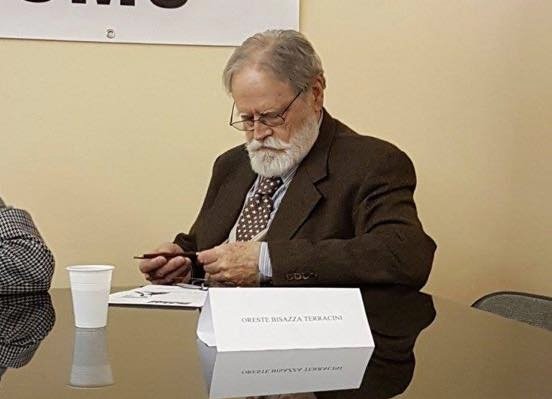ROME
Farewell to lawyer Oreste Bisazza Terracini – He contributed to the conviction of former SS Erich Priebke

On July 21, 1997, lawyer Oreste Bisazza Terracini was in court in Rome for the conclusion of the first-degree trial of former SS captain Erich Priebke who commanded the unit responsible for the Ardeatine Massacre in Rome on 24 March 1944 in which 335 Italian civilians were killed in retaliation for a partisan attack. “Never have you judged a man with such great guilt. Probably never, in your future as judges, will you encounter a guilt so terrifyingly vast. This is a guilt that does not expire,” said Bisazza Terracini, addressing the military tribunal. In court, the lawyer represented the Jewish Community of Rome as a civil party. “I do not have a weapon in my hand to raise against Erich Priebke, nor do I want to exact revenge. I only have my voice in my defense, in our defense, in defense of all of us,” said Bisazza Terracini, asking for justice to be served.
The following day, the verdict was delivered, and the former SS captain was convicted of war crimes. “I sought justice, and I obtained it. I did not seek revenge. I could have likely obtained that as well,” Bisazza Terracini explained to Pagine Ebraiche on the 25th anniversary of that verdict. This was a key moment in the lawyer’s career. The internationally renowned attorney passed away on August 13, 2024, at the age of 85.
“It is sad news; he offered us his dedication and support for important causes,” emphasized the President of the Union of the Italian Jewish Communities Noemi Di Segni, recalling Bisazza Terracini’s active commitment against antisemitism. Thanks to him, Di Segni explained, UCEI obtained the right to act judicially as an offended party on behalf of the Jewish world, a principle recently invoked in the case against Gabriele Rubini, a TV cook known as Chef Rubio.
As a child, Oreste Bisazza Terracini fled anti-Jewish persecutions. Born in 1939, he was saved in Switzerland by his mother, the actress Maria Laura Rocca, after September 8, 1943. There, the two were interned in a refugee camp, where Rocca met the future President of the Italian Constituent Assembly, Umberto Terracini. Returning to Italy at the end of the war, Mr Terracini married Ms Rocca and adopted little Oreste. “From Terracini, I learned a great life lesson from his extreme simplicity in behavior. He was exactly the same in all interpersonal relationships, treating both the humble and the powerful in the same manner,” Bisazza Terracini recounted in a 2018 interview with the daily Corriere della Sera.
The interview focused on the lawyer’s other passion, poetry. “He wrote about every human and Jewish feeling and condition. He wrote every day from 4 in the morning until 2 at night,” remembered Di Segni. In the interview, the lawyer emphasized his connection to the Jewish culture. “I am not religious, but my secularism does not exclude the heartfelt Jewish component that I feel within me. My family, strongly imbued with secularism, has never left much space for faith. Nonetheless, the theme of doubt and the divine is recurring in my poems.”
Vice President of the Italian League for Human Rights and President of the International Association of Jewish Lawyers, he had recently followed with UCEI the case of antisemitic stickers—featuring Anne Frank in a yellow-red uniform—posted by fans of the football club Lazio during a match at the Olympic Stadium in Rome.
Talking to Pagine Ebraiche, Bisazza Terracini did not hide his concern for the future of Holocaust memory in Italy. “Memory should always be conscious. Oblivion navigates in the unconscious, and I believe that the unconscious of Italians tends towards oblivion, which should be removed with methods different from what many believe the Day of Remembrance can achieve.”
May his memory be a blessing.
